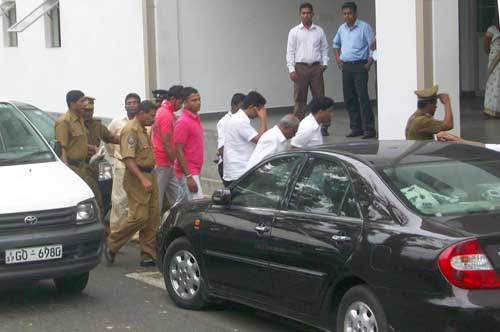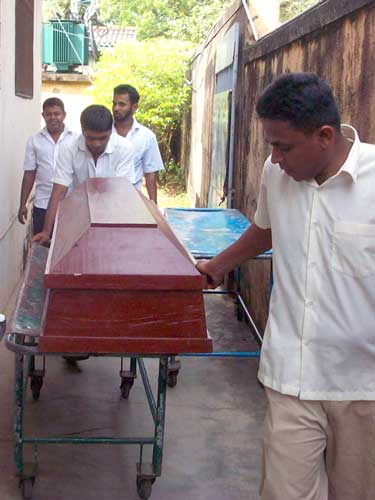Reply To:
Name - Reply Comment
Last Updated : 2024-05-07 01:51:00
_DM-9(19).jpg) New Delhi has been dubbed ‘the rape capital’ of the world, and one would have thought that the latest case to be added to this appalling list would have been greeted with a resigned shrug.
New Delhi has been dubbed ‘the rape capital’ of the world, and one would have thought that the latest case to be added to this appalling list would have been greeted with a resigned shrug.
.jpg) |
| Protest in New Delhi |
 |
| suspects of tangalle rape taken to court (file photo) |
 |
| The body of the slain tourist being taken to Matara Hospital (file photo) |
Darky Wednesday, 02 January 2013 03:30 AM
Any way, Rape Capital is hundred-times better than Rape Island!

Add comment
Comments will be edited (grammar, spelling and slang) and authorized at the discretion of Daily Mirror online. The website also has the right not to publish selected comments.
Reply To:
Name - Reply Comment
US authorities are currently reviewing the manifest of every cargo aboard MV
On March 26, a couple arriving from Thailand was arrested with 88 live animal
According to villagers from Naula-Moragolla out of 105 families 80 can afford
Is the situation in Sri Lanka so grim that locals harbour hope that they coul
5 hours ago - 0 - 260